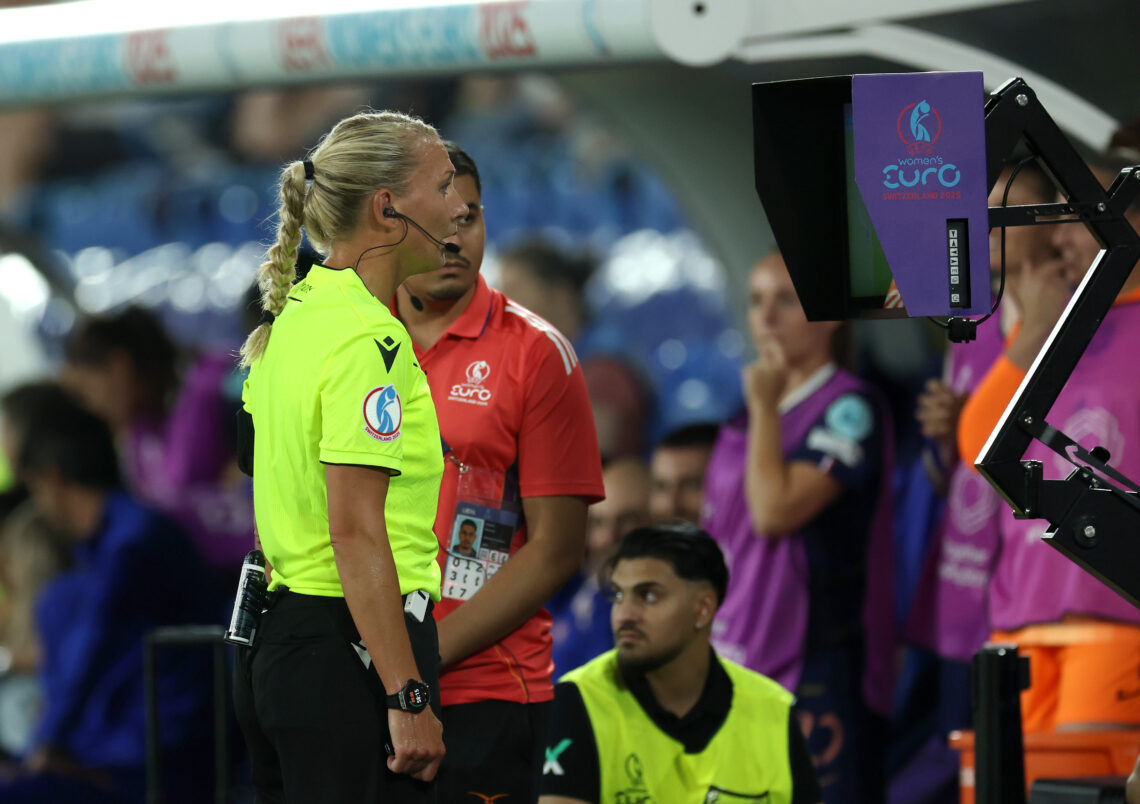Calls for better refereeing in women’s football have sparked debate over whether the Football Video Support system could be the solution the WSL needs.
Among the possible improvements to refereeing in women’s football in England, better training and making referees fully professional remains the main priority.
In terms of technology, VAR is not an option right now as it is not cost-effective.
For that reason, the FA, PGMOL and Women’s Super League Football Ltd should consider introducing the Football Video Support (FVS) system as an alternative to VAR.
On 1 December 2004, IFAB extended its trial of FVS. FIFA has already used the system in several women’s youth tournaments, including the U20 and U17 Women’s World Cups in 2024, as well as the FIFA Blue Stars/Youth Tournament, which the Arsenal Academy won that same year.
The technology will also be used at the upcoming 2025 U17 Women’s World Cup in Morocco.
FIFA has provided guidance on how the FVS works, with its main points being:
The FVS system is used only for clear and obvious errors or serious missed incidents in four cases:
a) Goal or no goal
b) Penalty or no penalty
c) Direct red cards (not second cautions)
d) Mistaken identity (when the wrong player is cautioned or sent off)
Only the team’s head coach, or the senior team official in their absence, can make a review request. It must be made immediately after the incident by twirling their finger in the air and handing a review request card to the fourth official. Players can ask their head coach to make a request.
The referee’s original decision will not be changed unless the replay footage clearly shows it was wrong or that a serious incident was missed. As the FVS uses fewer cameras than VAR, replays are often inconclusive, so the original decision may stand.
In the trial phase, each team is expected to be allowed two requests per match. If the review changes the referee’s decision, the team keeps its review request.
Allowing coaches to challenge decisions a small number of times is a positive step, and the fact FVS does not require an extensive camera setup makes the WSL an ideal competition for testing it.
The French D1 Arkema tested FVS in selected games a couple of seasons ago, although results were never published.
There is little doubt FVS would improve refereeing in the WSL, giving referees a tool to correct errors quickly. Anything that helps referees is valuable, as they cannot see everything on the pitch.
Another key area needing improvement is protecting players’ physical integrity by fully enforcing Law 12 and issuing yellow and red cards when required.
The current laissez-faire approach and lack of player protection has been a problem for years, preventing teams from playing football properly.
Fans do not go to matches to see players kicking each other instead of the ball. Unfortunately, some WSL matches still see referees lose control and allow games to descend into chaos in the name of game management.
Introducing VAR would also help, although the way the PGMOL implements it is still not in line with how FIFA and IFAB intended it to be.
